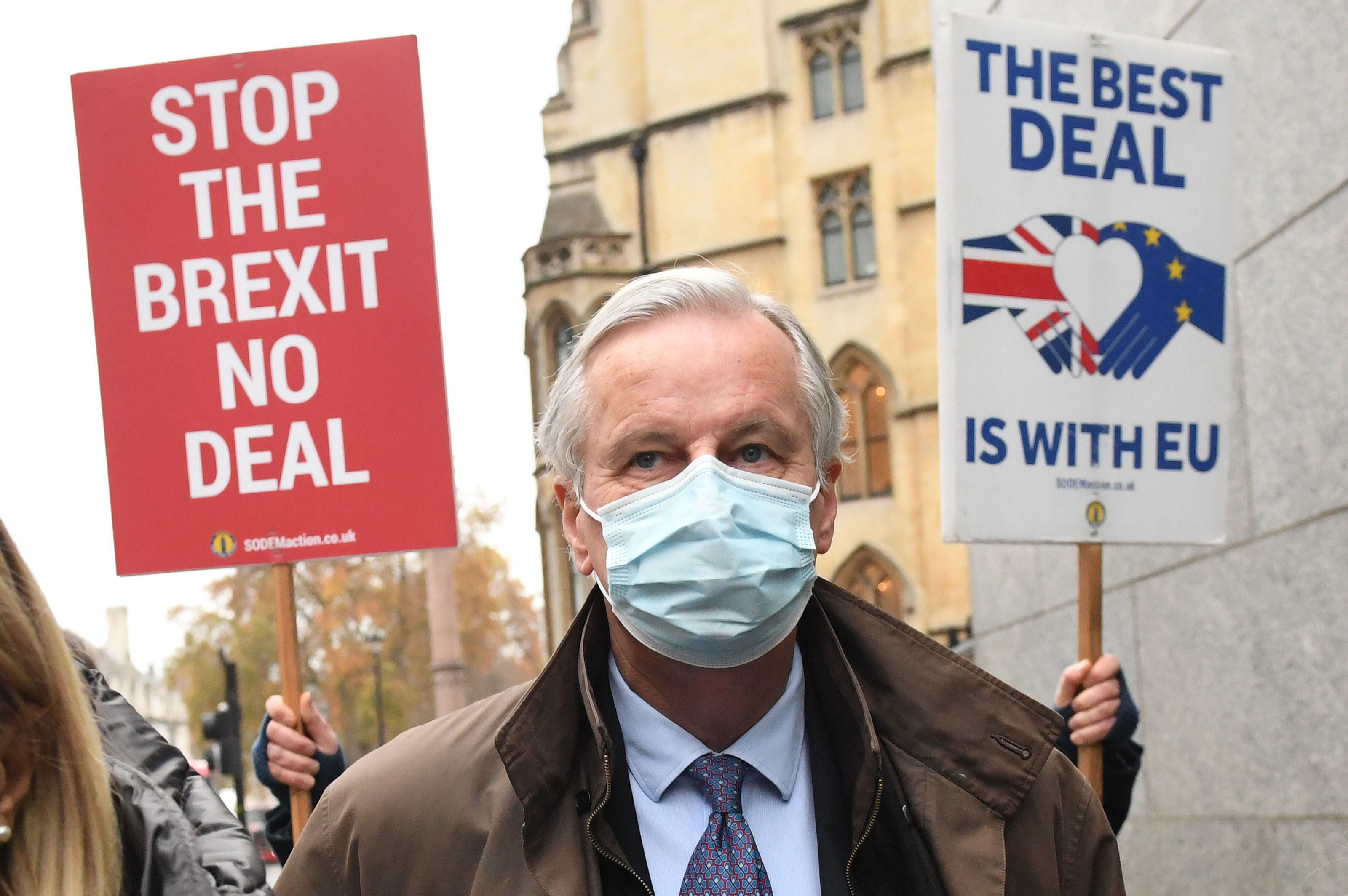Is it too late to extend the Brexit transition period?
While the consequences of the new Covid variant have already given us a taste of what a no-deal Brexit might look like, ministers have thus far rejected calls to delay Britain’s impending exit. Sean O’Grady looks at whether or not it’s still a possibility


Nicola Sturgeon, the first minister of Scotland, has called once again on the government to extend the Brexit transition period. This is nothing new but in politics, the same as comedy, er… timing is everything. With the blockade of transports from Britain as the new “sick man of Europe”, and chaos at the courts already mounting, even the most flinty of Brexiteers might be persuaded that shortages of food probably aren’t worth it, and Brexit might be usefully delayed for a few weeks at least. The talks, after all, are continuing, but they’re unlikely to convene over the holiday season. Travel and communications, and the ability of the politicians to deal with multiple crises, are under dangerous strain. It is all, as they say, unprecedented.
Sturgeon has been joined by a few other voices, and the chorus is bound to grow. However, for now, Downing Street is against the move. Whether this is a negotiating tactic or adamantine policy is of course unclear.
There are two reasons why extending the transition period would be awkward, but far from impossible. After all, it has happened before. On the EU side, under treaty law, the deadline for requesting a further extension of the transition period has already passed. That was on 30 June, but it is difficult to believe that the unanimous assent of the 27 member states could not secure some way around this problem.
On the British side the timing of the end of the transition is part of statute law, deliberately to impress on all concerned the seriousness of British intentions. So it would require a special parliamentary session, probably virtual, in order to amend the act of parliament. Thus could be done in a day, with overwhelming support in both houses. It could then be whisked to the Queen for her to fast track royal assent.
The issues are of course political. Aside from the pressure exerted on both sides to complete the talks, it is a matter of will on both sides, which means both sides wanting to avoid blame for a double whammy of hard no-deal Brexit plus a Covid standstill on travellers and goods. It would be a U-turn for Boris Johnson, but a forgivable one. The “optics” of vast queues of lorries and emptying shop shelves aren’t going to boost the government’s reputation for competence. Dover is already a lorry park. Johnson’s problem this time might be that President Macron of France might seek to exact some concession just for granting the extension – though that is pure speculation.
There might be other options. The talks and transition period could just be extended via some short-term mini trade agreement. At an earlier moment of deadlock in the talks, Johnson and others suggested that Article 24 of the constitution of the World Trade Organisation (formerly Gatt, the general agreement on tariffs and trade) could be invoked. This would permit the UK and EU to continue to trade on existing terms provided both sides agree and attest that they are in serious negotiations to establish a free trade deal. It would only cover goods, but it would relieve the pressure. However it would take political will on both sides to press ahead with it. Convention suggests such an Article 24 arrangement could last for ten years.
If past experience is a guide, Downing Street will leave it until the last possible moment before asking for an extension, probably after Boxing Day. Even so, there is no obligation on the EU to agree to it, and there are some on both sides who think that short-term chaos and no-deal Brexit would be a price worth paying for a more advantageous trade deal negotiated post-transition period. If that is the case then the southeast of England and the channel ports are about to become a lot more stressed.

Join our commenting forum
Join thought-provoking conversations, follow other Independent readers and see their replies
Comments